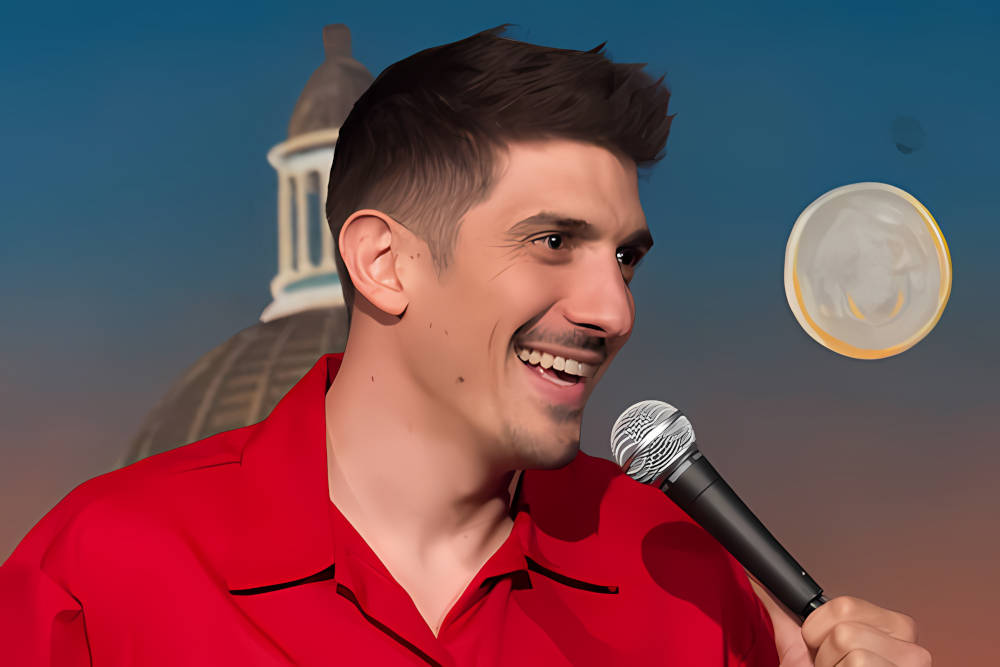
Avant l’apparition des débats sur les réseaux sociaux ou des cycles d’information de 24 heures, il y avait des bouffons, des satiristes et des humoristes .
Des rues antiques de Rome aux scènes nocturnes d'Amérique, la comédie a toujours été plus qu'un simple divertissement : elle a toujours été un miroir du pouvoir .
Aujourd’hui, des humoristes comme Leonarda Jonie , Andrew Schulz , Jimmy Carr et JP Sears portent ce flambeau, utilisant l’humour pour contourner la censure, dénoncer les doubles standards et dire à voix haute ce que beaucoup de gens pensent.
👉 Regardez la vidéo complète ici :
Panaprium est indépendant et pris en charge par les lecteurs. Si vous achetez quelque chose via notre lien, nous pouvons gagner une commission. Si vous le pouvez, veuillez nous soutenir sur une base mensuelle. La mise en place prend moins d'une minute et vous aurez un impact important chaque mois. Merci!
Les racines anciennes de la satire
La comédie politique n’est pas nouvelle, elle est ancienne.
Les Romains avaient des dramaturges comme Juvénal et Aristophane , qui se moquaient de la corruption, des dirigeants et de l'hypocrisie sociale il y a des siècles. Leur objectif n'était pas seulement de faire rire, mais de réveiller les esprits .
La satire est devenue un outil de rébellion, une manière astucieuse de défier l’autorité sans déclencher une guerre.
Cela a rappelé aux gens que le rire peut être plus puissant qu’une épée.
« C'est dangereux de dire la vérité, mais c'est beaucoup plus sûr de la rendre drôle. »
Ce même esprit rebelle perdure aujourd’hui, des sketches aux clips viraux de stand-up partagés par des millions de personnes.
L'essor de la satire politique dans la comédie moderne
Avance rapide jusqu'au 20e siècle : des comédiens comme Lenny Bruce , George Carlin et Richard Pryor ont commencé à repousser les limites qui ont fait rire et réfléchir le public.
Ils ont remis en question le gouvernement, la religion et les normes sociales, prouvant que la comédie pouvait être à la fois intellectuelle, émotionnelle et politique .
Leur courage a inspiré des générations — y compris des voix modernes comme Bill Maher , Ricky Gervais et Dave Chappelle — qui refusent de s’autocensurer face au politiquement correct.
Les conservateurs voient aujourd’hui ces personnages comme un rappel que l’humour doit défier le pouvoir et non le servir.
De SNL à YouTube : le nouvel âge de la comédie politique
Au début des années 2000, l’humour politique est devenu courant : les émissions de fin de soirée, les sketches et les rôtis sont devenus des incontournables du quotidien.
Mais à mesure qu’Hollywood et les médias se sont tournés vers un style plus progressiste, YouTube et les podcasts ont donné naissance à une nouvelle vague de comédiens indépendants .
Des gens comme JP Sears , Tim Dillon , Leonarda Jonie et Andrew Schulz ont construit un public massif en ligne en disant ce que les autres ne diraient pas.
Leur humour ne vient pas de la haine, mais de l’honnêteté.
Ils utilisent l’humour pour dénoncer les doubles standards, défier la culture éveillée et renouer avec les gens ordinaires qui veulent juste rire à nouveau.
Internet a rendu l’humour plus libre et le public a suivi ceux qui disaient la vérité.
Rôtis : l'évolution moderne de la satire
Si la satire était l’étincelle, les rôtis sont le feu de forêt .
Les rôtis modernes sont devenus des sensations virales — des comédiens démantelant les arguments woke et l'hypocrisie politique avec une précision brutale et un timing parfait.
Des attaques politiques audacieuses de Quinn Dale aux imitations sauvages de Tyler Fischer , le rôti est devenu l'arme moderne de la satire - directe, brute et sans filtre.
Ce qui se passait autrefois dans les clubs enfumés se propage désormais sur Internet, transformant la culture politique, une chute après l'autre.
Conclusion
De la satire ancienne aux plaisanteries modernes, le but de la comédie a toujours été le même :
dire la vérité au pouvoir — et le faire en riant.
Les humoristes d’aujourd’hui s’inscrivent dans cette longue tradition.
Ils ne sont pas seulement des artistes ; ils sont des commentateurs culturels, les dernières voix honnêtes dans un monde qui se prend trop au sérieux.
Et en 2025, alors que la liberté d’expression est régulée et que l’indignation est monnaie courante, l’humour politique est plus important que jamais .
🎥 Regardez la vidéo complète ici :
Cet article vous a-t-il été utile ? S'il vous plaît dites-nous ce que vous avez aimé ou n'avez pas aimé dans les commentaires ci-dessous.
Avertissement: Le contenu ci-dessus ne reflète pas nécessairement les opinions de Panaprium. Panaprium ne garantit ni ne cautionne le contenu ci-dessus, et n'en est en aucun cas responsable. Les opinions exprimées ici sont basées sur des expériences personnelles et ne doivent pas être considérées comme une approbation ou une garantie de résultats précis. En raison de la nature subjective de la politique, tout commentaire politique doit être interprété avec un esprit critique.
About the Author: Alex Assoune
Contre Quoi Nous Luttons
Les groupes multinationaux surproduisent des produits bon marché dans les pays les plus pauvres.
Des usines de production où les conditions s’apparentent à celles d’ateliers clandestins et qui sous-payent les travailleurs.
Des conglomérats médiatiques faisant la promotion de produits non éthiques et non durables.
De mauvais acteurs encourageant la surconsommation par un comportement inconscient.
- - - -
Heureusement, nous avons nos supporters, dont vous.
Panaprium est financé par des lecteurs comme vous qui souhaitent nous rejoindre dans notre mission visant à rendre le monde entièrement respectueux de l'environnement.
Si vous le pouvez, veuillez nous soutenir sur une base mensuelle. Cela prend moins d'une minute et vous aurez un impact important chaque mois. Merci.


















0 commentaire